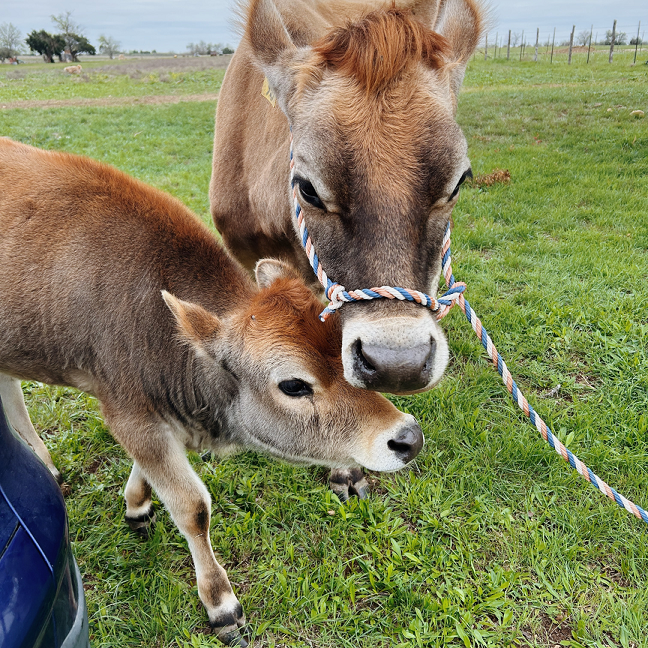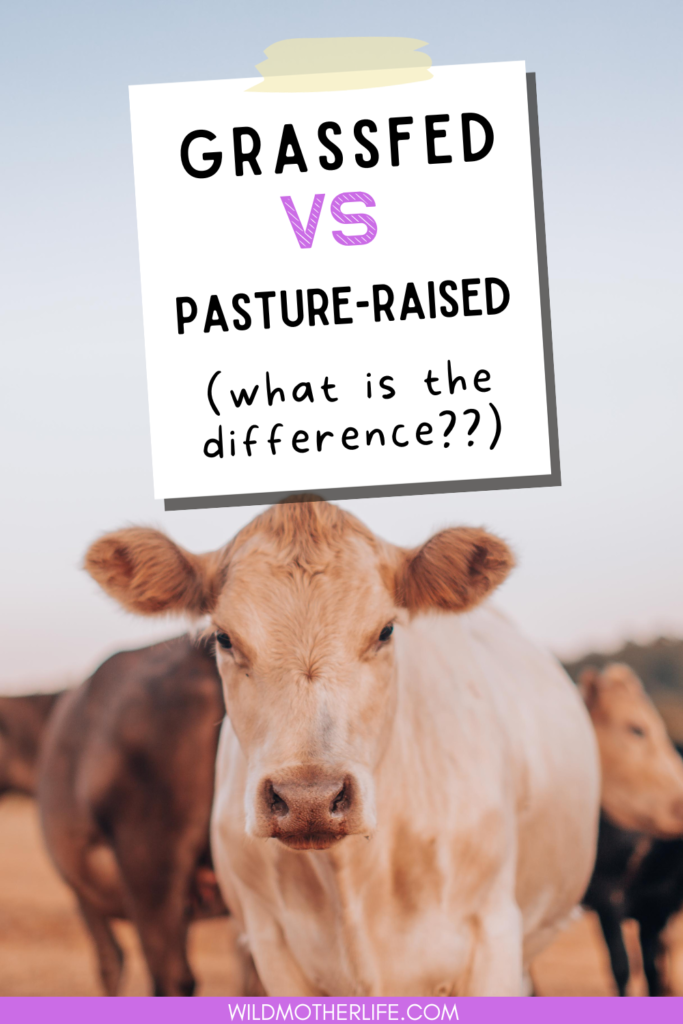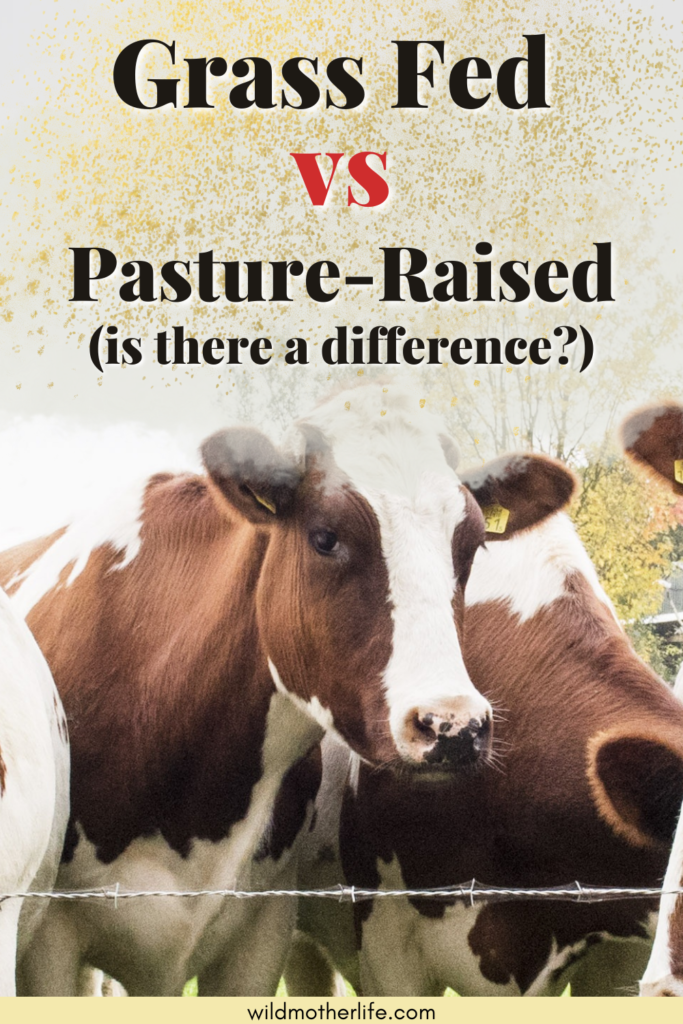Reading labels in the grocery store – specifically when it comes to pasture raised vs grass fed meat – can be a confusing process. With greenwashing and many companies using terms like “all natural” and “grass fed” and “free roaming”, it can be hard to decipher the difference between brand qualities.
So let’s provide some clarity for what pasture raised vs grass fed actually means, some of the nuances of each, as well as what you should be looking from in a high quality farm!
If you’re in the market for high quality, pasture raised and 100% grass fed/finished Desiccated Beef Liver Capsules, check out my absolute favorite brand here!
To start – here are the USDA’s guidelines for making animal claims.

Pasture Raised
The term “Pasture Raised” describes where the animals live – they live on pasture. The pastures can be managed by the farmer, and It is possible that the animals may be supplemented with grain or soybeans at some point in their life. Being pasture raised does not mean that the animal was only fed grass for it’s entire life. However given that the animal lives outside on pasture, the likelihood is high that grass is a very large percentage of the animal’s diet.
Grass Fed
“Grass Fed” describes what the animals ate during their life – not where they lived. This means that potentially, an animal could live in a barn for it’s whole life and be fed dried grass, and still be labeled “grass fed”- I will say, I’m sure this instance is very rare, given that it’s easier for a farmer to let cows self graze on grass. It also means that an animal could be fed grass for the majority of it’s life, but be given grain at the end of it’s life to “fatten” it up. Some brands will be labeled “grass finished” which means that the animal did not finish it’s life eating grain, but ate 100% grass throughout it’s life.

Pasture Raised vs Grass Fed – which is better?
In my opinion both options are good and both need more information from the specific farm in order to determine which is “better”. The likelihood of animal being raised in a feed lot and having a miserable, unethical life drops significantly with both the grass fed and pasture raised label.
The terms can be quite confusing and this is why I always recommend supporting your own local farms. When you support a local farmer, you are able to visit the farm, see the processes, observe the animals, and be a firsthand witness to the farm practices. Many smaller, local farms have superior standards compared to a lot of brands that sell in the grocery store.
If you’re wanting to purchase your meat from a local farm but aren’t sure what you’re looking for or what kind of questions to ask the farmer, here are a few things I like to ask!
- Do you supplement your animals and if so, what do you supplement them with?
- Do you use herbicide/pesticides on your pasture? What do you use for weed management?
- How much space do your animals get and how often do you rotate them?
- Do you practice low stress handling techniques?
I actually created a FREE guide and checklist with 12 different questions to ask your farmer, a list of things to observe when you’re visiting the farm, and resources to learn more! I suggest downloading this checklist and printing it out or keeping it on your phone so that you know exactly what kind of questions and information you need to be looking for from your farmer!
Drop your email below and I’ll send you the freebie!
Other Articles You Might Like:
- Beef Tallow Benefits: How To Use This Traditional Fat
- Where To Buy Raw Milk: A Beginner’s Guide
- How to Make Homemade Gummies WIth Gelatin


